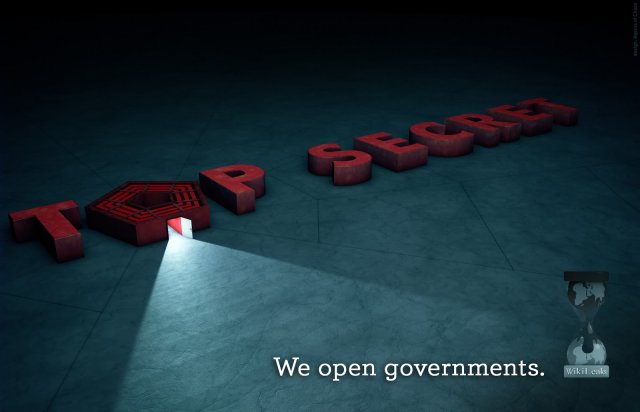
Critics have dubbed the Intelligence Services Legislation Amendment Bill now before parliament the “WikiLeaks Amendment”.
It will strengthen the powers of Australia’s spy agency ASIO to target any individual or organisation that opposes the interests of the Australian government, even if Australia’s defence interests and international relations are not at stake.
This would include Australian citizens involved in non-violent political activities abroad, which do not constitute a threat to Australia’s security.
Nevertheless, under the new and broadly defined bill, the minister and ASIO will have almost unfettered discretion to determine when and how ASIO’s powers can be used to investigate individuals and organisations abroad on the grounds they hold implications for Australia’s foreign relations.
Not coincidently, individuals such as Julian Assange and organisations such as WikiLeaks could be targeted by ASIO under this new bill.
Currently, under section four of the Australian Security Intelligence Organisation Act 1979, the work of WikiLeaks would not constitute “foreign intelligence”.
But the new bill redefines foreign intelligence and expands the grounds on which ASIO can investigate and place a warrant upon an individual or organisation. WikiLeaks could be considered to hold implications for Australia’s foreign relations and thus become subject to ASIO surveillance.
ASIO will also have the power to issue warrants for a much wider range of people. ASIO may issue a warrant for an individual or organisation deemed to impact on Australia’s economic wellbeing.
This could allow ASIO to engage in economic or industrial espionage, particularly Australians working for overseas organisations that are big rivals to key Australian industries.

Greens Senator Scott Ludlam told parliament on July 4: “The Law Council indicates this is significant broadening of the range of circumstances where listening device warrants, computer access warrants and surveillance and search warrants are available about any person or group outside Australia whenever those activities are considered to be somehow relevant to national security, foreign relations or economic wellbeing …
“We have dramatically expanded the scope of this agency's reach, at the stroke of a pen.”
Ludlam said the Greens think some aspects of the bill are “more or less inoffensive” and “some of them we strongly support”. But it is undeniable the expansion of ASIO’s powers is of great concern.
In an interview with Crikey, Ludlam said: “The government won't need to justify such extraordinary overreach because they know the opposition will vote for anything with ‘national security’ in the title.”
But the new amendments will permit ASIO to investigate individuals and organisations that pose no threat to national security.
Organisations such as WikiLeaks and activist groups such as Anonymous, alongside individual Australian activists worldwide, have worked, and continue to work, to reveal the lies, crimes and hypocrisy of the elites. It is now clearer than ever that the public’s right to access information is threatening to the Australian government.
Oddly enough, the committee behind the bill changed the original date of report from September 21st to June 22nd to rush the bill through the Senate. Why is there such a hurry to get this bill enforced?
In his speech, Ludlam said: “If [the legislation] is simply about attacking civil liberties or pursuing other agendas under the guise of national security, which is a term I think is now far too loosely interpreted under the amendments that we are considering tonight, then let us at least take a good, cold, hard look at what we are doing, because it is extraordinarily difficult to roll these things back once they are in force.”
The bill has many similarities to the Patriot Act in the United States. The Patriot Act was rushed through congress after the September 11 terror attacks in 2001. It expanded the power of federal law enforcement agencies, allowing the FBI and CIA to share evidence and spy on US citizens and non-citizens under the guise of “national security” and hunting down “terrorists”.
Unsurprisingly, the Patriot Act has infringed on US citizens’ civil liberties. If the new ASIO bill is passed in Australia, it could have the same effect.
This bill will allow further state control and interference with individuals and organisations that present no harm to the people, but threaten the government’s control and expose its lies.
We should oppose and fight against laws that further undermine freedom and privacy in our legal system. If we allow our government to make decisions that infringe on our basic human rights and civil liberties, then we too are responsible for the outcome of a morally bankrupt society.